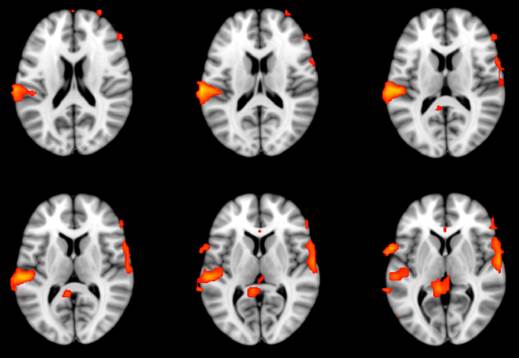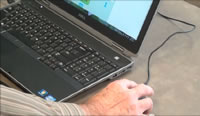June is Aphasia Awareness Month
Research in Dr. Elizabeth Rochon’s lab is a team effort. Together, her team is focused on transforming lives of people living with aphasia and dementia. Their research therapies for stroke and neurodegenerative diseases are receiving world-wide attention.
Currently, the lab is developing new treatments for language impairments for individuals who have aphasia following a stroke. In addition to addressing questions of efficacy and effectiveness, this work also addresses questions of brain-behaviour relationships and neuroplasticity.
 For example, in one ongoing study, Dr. Rochon and collaborators (C. Leonard, L. Laird, K. Marcotte, C. Grady, S. Graham, J. Meltzer) are using functional magnetic resonance imaging (fMRI) to investigate the neural processing characteristics associated with changes in the ability to produce a word as a function of different treatment intensity regimens for naming impairments in aphasia.
For example, in one ongoing study, Dr. Rochon and collaborators (C. Leonard, L. Laird, K. Marcotte, C. Grady, S. Graham, J. Meltzer) are using functional magnetic resonance imaging (fMRI) to investigate the neural processing characteristics associated with changes in the ability to produce a word as a function of different treatment intensity regimens for naming impairments in aphasia.
All of these projects are carried out with a large, multidisciplinary group of collaborators, postdoctoral fellows, students, research staff and volunteers.

